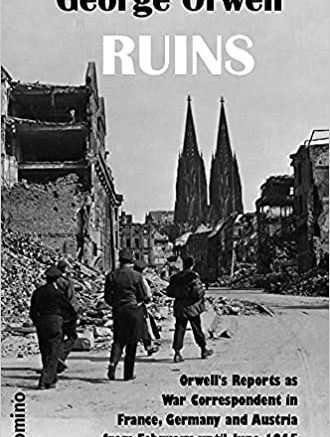During the years between writing Animal Farm and 1984, George Orwell was mostly engaged with journalism. In early 1945, he was sent over to the continent to observe the final weeks of the Second World War in Europe. He spent time in France, Germany and Austria and his short articles from that period have just now been collected in this little book, a couple of them being published here for the first time.
One has to say at the outset that this is not Orwell at his very best. These are short pieces, quickly written, that are not necessarily of the quality that one would expect from the man who wrote Homage to Catalonia.
The editors helpfully point out a few of these weaknesses. For example, when Orwell writes about French politics in April 1945, he concludes that “an overwhelming victory for the Left is not to be expected.” The editors have added a footnote reading “The elections were held in France on 21 October 1945 and the parties of the Left won three-quarters of the seats.”
But it was not just his inability to predict the future that makes this book a lesser one. It was also what Orwell didn’t say. Though news of the liberation of the death camps was coming out on a daily basis, Orwell says nothing of this. He describes the forced labourers in Germany, then being organised for repatriation to their home countries, as being quite well fed and insists that in many cases they could not really be considered slaves. (He was writing in particular about the agricultural workers.). He does correctly notice the problem of people from Eastern Europe being forced to return to the USSR against their will.
He expresses some rather odd opinions. For example, he wrote that “Only the minority of sadists, who must have their ‘atrocities’ from one source or another, take a keen interest in the hunting-down of war criminals and quislings. If you ask the average man what crime Goering, Ribbentrop, and the rest are to be charged at their trial, he cannot tell you. Somehow the punishment of these monsters ceases to seem attractive when it becomes possible: indeed, once under lock and key, they almost cease to be monsters.”
Not his best work by a long shot.
